The Terms of Reference for Ireland’s inquiry into the handling of the Covid-19 pandemic are expected to go to Cabinet very soon.
This will be an inquiry like no other, given that the issues at the heart of it have affected every single citizen here, young and old.
Lives were at stake – so it will be vital to learn about what Ireland got right and what we got wrong and why. There is also still a lot of trauma and hurt over those most difficult times and the hard decisions had to be made in the heat of the crisis.
For all these reasons, there will be intense interest in the terms of reference and the scope of the probe.
Transparency
There will be a demand for total openness and transparency in the inquiry proceedings. This is important because many of the decisions made by Government and informed by NPHET and others were done behind closed doors.
A key issue will be whether it will be a truly public inquiry – if it will be broadcast and will the media be invited to attend?
The public will want to be reassured, in public, that all questions are asked and answered, that all the necessary witnesses attend, that all the required documents are furnished, so that Ireland will be better prepared for any future pandemic.
This will include frontline health staff and families affected by events.
We owe nothing less to the current and future generations.
The choice of chairperson and the panel of experts on the inquiry teams will also be important to its task.
The lead department for preparing the terms of reference is the Department of the Taoiseach. It has been scoping out various options on the best type of inquiry.
Sinn Féin’s health spokesperson David Cullinane has said that his party has not yet been consulted on the terms of reference. He said he wants the inquiry to establish the facts but not to be a “witch-hunt”.
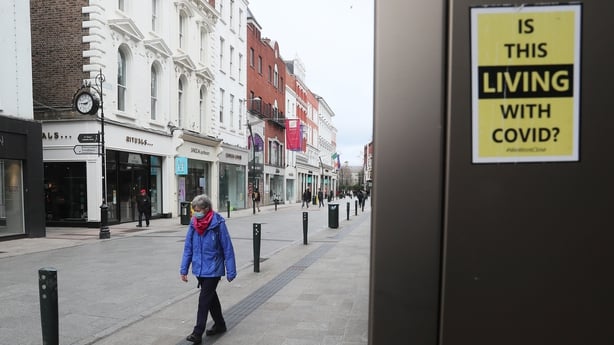
Stephen McMahon, Irish Patients Association, said that the inquiry must be televised. He also said that some key players who have been making statements about how the inquiry should operate should refrain from making such statements.
“When we compare well with international benchmarks, this should not minimise a key question – could we have done better?”, he said.
Thankfully, the Covid-19 public health emergency is over, although Covid-19 is still in circulation here and currently at high levels, with 1,200 cases last week and 459 hospitalisations.
Deaths are still being recorded but at lower levels to the peaks.
We are at a good remove now from the unprecedented events that started here on 29 February 2020 and that distance may help in a more dispassionate, factual examination of all the issues.
Other countries like Sweden, have held their inquiries and the UK is going through a difficult full public inquiry, that may continue for years. The aim here is to avoid a UK adversarial type inquiry with its battery of lawyers and attendant high costs.
Getting the Irish inquiry model right will be crucial. An inquiry that does not have broad public and political confidence would be a significant problem.
Fact finding mission
From the Government comments to date, the aim appears to be to avoid a combative, legalistic, blame-game hearing and instead have a fact-finding inquiry. That will not be an easy task.
Whatever the format, the inquiry is likely to last a year or two or more, as there is so much ground to cover, so patience will be needed.
The inquiry must look at the public health response, the social impact of restrictions, the health impact on people physical and mental, the huge economic impact, the limitations of civil liberties through emergency measures, plus the ongoing impact in terms of Long Covid.
Government and NPHET
It will also be expected to examine the crucial relationship between the Government and the advisory body, the National Public Health Emergency Team (NPHET) which was centre stage.
It is an often quoted phrase that Civil Servants and Advisors advise, and the Government decides – did that always happen in Ireland’s experience?
The question will be asked whether the Government relied too heavily on a relatively small group of scientific and medical advisors and what measures did the political leadership take to interrogate the regular NPHET recommendations and include a wider context.
A fundamental question for the inquiry will be whether Ireland was guided by the science, at all times. We all remember so well the terms wet pubs, €9 meals, the two metre rule, cocooning and staying at home.
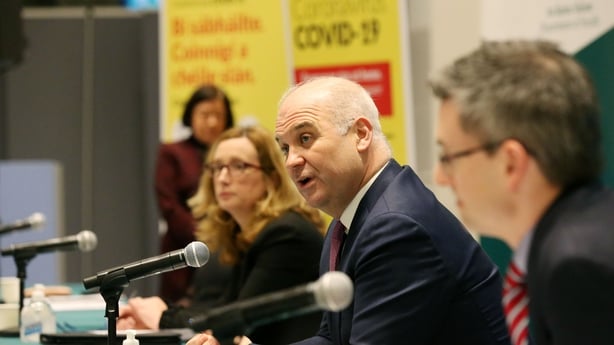
It will be important for the inquiry to hear from individual NPHET members who dissented from various recommendations. One member, Professor Martin Cormican has said that the Covid response “depended on fear”.
He also believed that basic freedoms were excessively limited. He has particularly pointed to the ban on visits to relatives in private nursing homes and school closures as wrong.
Act fast
There was a major problem in the early stages of the pandemic with limited data about the very nature of coronavirus and how to deal with it.
There was a telling line during the pandemic from World Health Organization executive Dr Mike Ryan about the need to act fast and have no regrets. He said the greatest error is not to move. Speed trumps perfection, he added.
Covid-19 was not like Severe Acute Respiratory Syndrome (SARS) or Middle East Respiratory Syndrome (MERS), which resulted in a relatively small number of cases and deaths worldwide. Covid was a once-in-a-100-year event and nothing like it had been seen in living memory.
Ireland essentially battled with five strains of concern during the pandemic. The first coronavirus case was confirmed here in late February 2020. That is ground zero. Then came the Beta strain in December 2020.
That was followed by the Alpha (Kent variant) in February 2021, the Delta variant in April 2021 and the severe Omicron variant in December 2021.
Most restrictions were lifted in January-February 2022 and Ireland has returned to so-called normality but the after effects remain for many people. And with those, so many questions to be answered.

Modelling projections for cases and deaths was challenging, with long term forecasting especially difficult. We know so much more now about Covid-19 but the early days were frightening because so little was understood by both the experts and the public.
A recent article in the British Medical Journal (BMJ) explored how inaccurate narratives, early in the pandemic about the way Covid-19 spread, shaped a flawed policy response.
There was an early belief that Covid-19 was transmitted by droplets, rather than being airborne.
In that BMJ article, Professor Trisha Greenhalgh and colleagues say that that measures aimed at an assumed droplet pathogen (handwashing, surface-cleansing, physical distancing) were over-emphasised.
The team’s research found that measures to reduce airborne transmission, like improving indoor air-quality, reducing indoor crowding and high-grade respiratory protection were under-emphasised.
There were several experts here regularly pointing to the need for better air-quality measures like HEPA-filters, so that, for example, children could go to school. We know that children were badly affected by the pandemic, unable to attend school in person and all the other benefits that physical attendance with other kids provides.
PPE ‘gold-dust’
Eventually, as we progressed through the pandemic, most people were wearing masks.
Early on the HSE said it was in a battle to secure PPE from outside of Ireland.
Its then CEO, Paul Reid, described PPE as like “gold dust” with competing countries willing to pay premium prices resulting in what he described as “modern day piracy”.
Did the delays in securing PPE for health staff lead to avoidable infections of healthcare workers and patients?
No excess deaths
In the past week, a report from the Organisation for Economic Co-operation and Development (OECD) placed Ireland alongside eight other countries which it found had no excess deaths during the pandemic.
The excess death toll in the UK is estimated to be around 230,000 people. Excess deaths are the number of deaths from all causes during a period of time, above what would normally be expected.
One of the countries with no excess deaths was Sweden, which had light-touch restrictions. That is very interesting. It has been postulated that the Swedish people did what was needed voluntarily to protect themselves, without the need for heavy Government controls.
Some of the other key issues to be examined by the inquiry here will be:
Private nursing homes
How were private nursing homes treated and protected in the early stages of the pandemic? Was there timely personal protective equipment (PPE) as well as staffing supports provided?
Early in the pandemic, to free up hospital beds, patients who were asymptomatic were discharged from hospitals to nursing homes but this resulted in other vulnerable people in homes being infected. The belief that asymptomatic people did not transmit the virus proved to be mistaken.
Lockdowns
Lockdowns were one of the most controversial issues and there were significant tensions between the Government and NPHET at times. At the heart of these tensions is whether it is appropriate for any civil servant to publicly question government policy.
Were all the lockdowns necessary in terms of timing and length? Were they introduced at the correct time and were the projections of Covid cases and hospitalisations and deaths correct, in support of those restrictions.
Proportionality
People debate the question as to whether the public health response was proportionate to the risk?
In particular, were all the school closures necessary and what consideration was given to the length of these closures. For many older people, especially those living alone, Covid-19 was a terrible time of isolation and loneliness.
Mask wearing
During the early stages of the pandemic there were differing expert views about mask wearing.
Indeed, in April 2020, then minister for health Simon Harris told the Dáil he did not envisage face masking being made mandatory and was awaiting advice from NPHET.
Initially, some NPHET members felt that mask wearing could give a false sense of protection and people may not wear masks properly. But as we know, eventually mask wearing became mandatory.
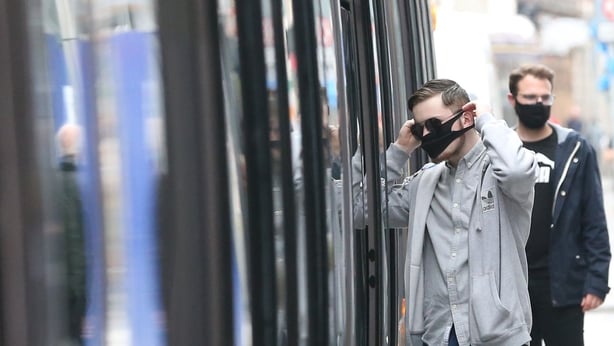
Similarly, there was much debate on the use and value of antigen tests. Late into the pandemic, after several reports, they were more widely used and made available by the HSE.
To date, there have been over 1.7 million PCR-confirmed cases of Covid-19 here and 9,366 people have died.
Some of those deeply affected by the pandemic will want to share their experiences and no doubt the inquiry will facilitate that.
Hospital capacity
On several occasions, the hospital system had great difficult coping and cancer screening and other services were paused.
Some healthcare was put on hold and some people delayed going to a doctor for a variety of reasons, including the fear of entering a healthcare environment.
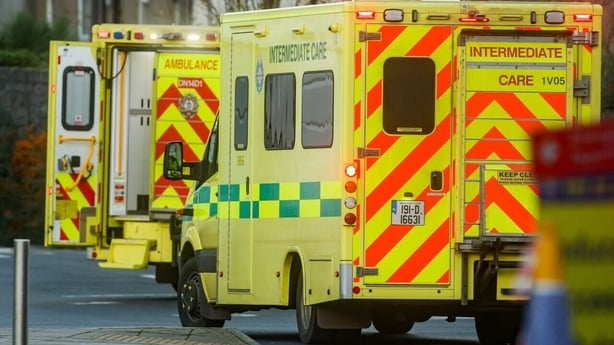
The inquiry will also be expected to look at HSE bed capacity and ICU capacity, how this was managed during the pandemic and how the health system can better prepare for the future.
The inquiry will want to examine what plans the Department of Health had for a pandemic, prior to anyone ever hearing about coronavirus. It was known that a pandemic would come at some point and that preparedness was needed.
Vaccination
The first Covid-19 vaccination here was given in December 2020. This was the beginning of new hope.
Most people view the vaccination campaign as one of the successes and there has been significant uptake here. Doctors say that this helped save many lives as well as serious hospitalisations.
But there was also some opposition to vaccination and many questions raised about it. Was it properly explained to people who had concerns?
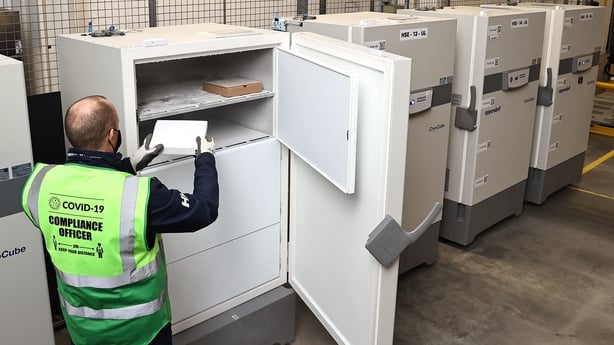
Social media
The inquiry may also wish to look at the role of misinformation, disinformation and official communications to the public, as well as the role of conspiracy theories and social media and how this may be better handled in the future.
There have been a number of very good books on the pandemic but the full story has yet to be told.
Indeed, it will likely be historians of the future who should be able to convey the complete picture, removed from events, especially when all State papers are available.
For now, lessons need to be learned. Collectively, Ireland needs to understand why we went through what we did and the difficult decisions that had to be made.
For all these reasons, the forthcoming inquiry is of huge national significance and one which many members of the public will want the opportunity to follow in detail, in public.
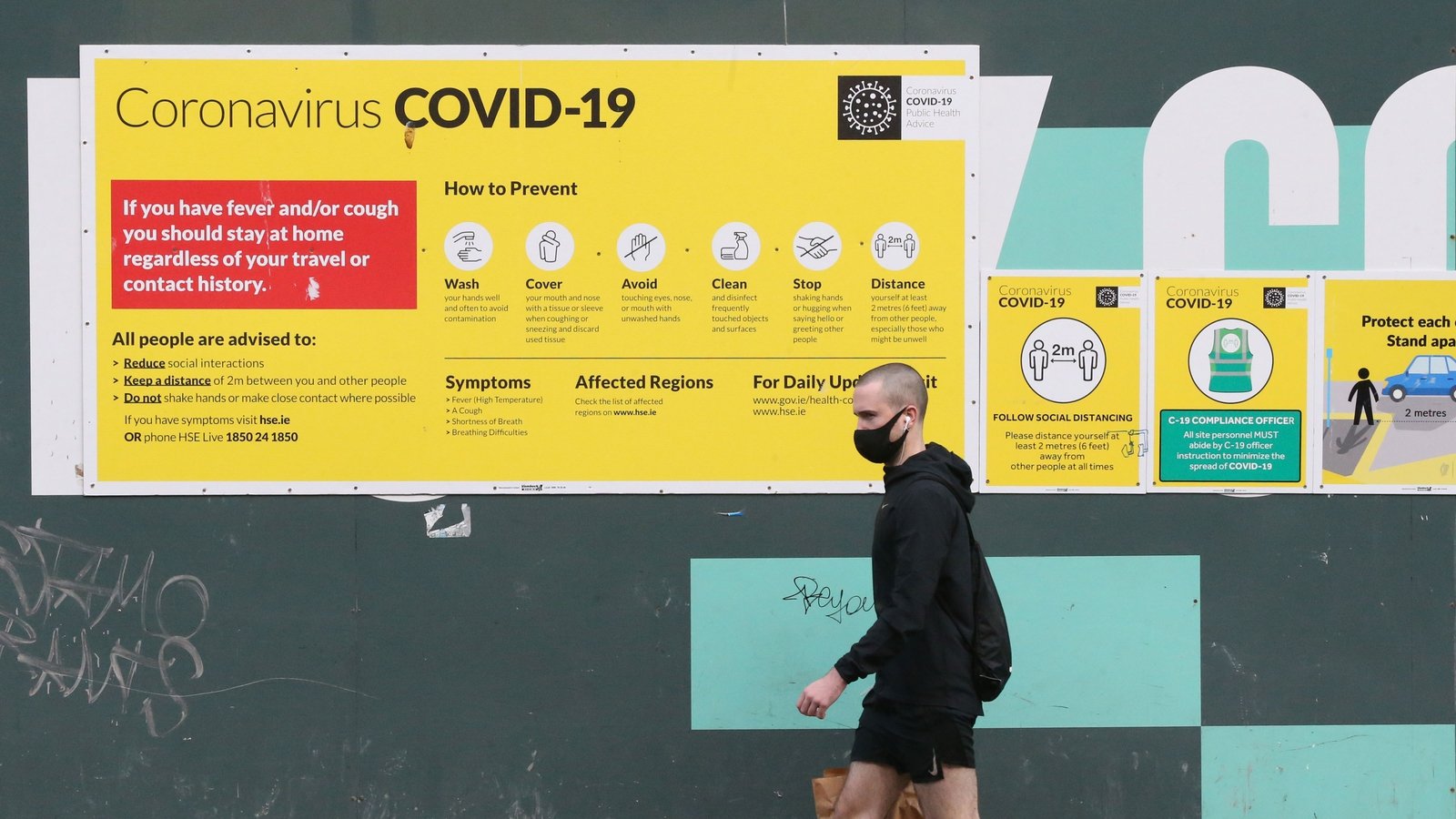
Hello,
I’m Abi, an English SEO copywriter and content writer. I excel in crafting blogs, articles, e-commerce product descriptions, SEO content, website content, business service descriptions, newsletter content, brochures, proofreading, social media captions, LinkedIn content, and SOPs.
My rate is USD 20 for every 1000 words of content. If you don’t have time to plan out your content, we can help you with that.
Feel free to email me at Contentwriting011994@outlook.com with any current requirements.
Thanks,
Abi
Hello,
I’m Abi, an English SEO copywriter and content writer. I excel in crafting blogs, articles, e-commerce product descriptions, SEO content, website content, business service descriptions, newsletter content, brochures, proofreading, social media captions, LinkedIn content, and SOPs.
My rate is USD 40 for every 1000 words of content. If you don’t have time to plan out your content, we can help you with that.
Feel free to email me at Contentwriting011994@outlook.com with any current requirements.
Thanks,
Abi